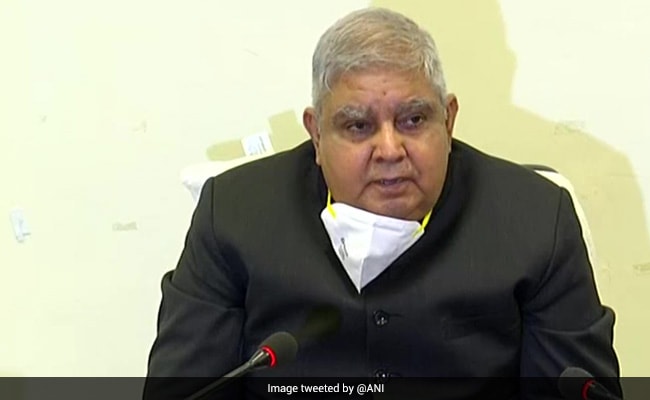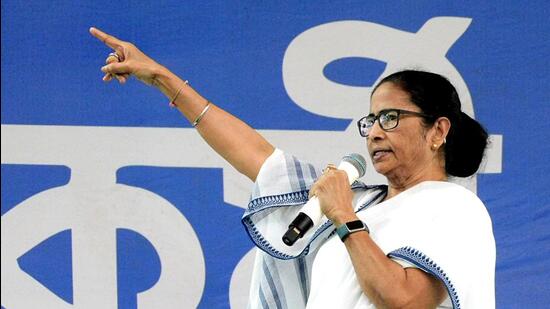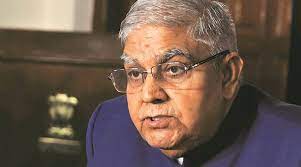The West Bengal Governor, CV Ananda Bose, recently appointed 10 distinguished professors as vice-chancellors of state-run universities, leading to a heated standoff with the Trinamool Congress (TMC) government, which vehemently denounced the decision as “illegal.” In response, the state’s education minister has urged the professors to decline the appointments and has sought legal advice on the matter. The controversy arises in the wake of the Calcutta High Court’s ruling that invalidated the state government’s extension of the tenure of 29 vice-chancellors, citing regulations set forth by the University Grants Commission (UGC) that mandate appointments based on recommendations from a search committee comprising representatives from the UGC, the governor, and the state.
Governor CV Ananda Bose, who also serves as the chancellor of all 31 state-run universities, held meetings earlier this week with the 10 senior professors before announcing their appointments on Thursday, as confirmed by an anonymous Raj Bhavan official.
While no official statement has been issued by the Raj Bhavan regarding the vice-chancellors’ appointments, the state’s education minister, Bratya Basu, swiftly denounced the move as “illegal” and urged the professors to reject the offers extended to them.
Controversy Erupts Over Appointment of Vice-Chancellors in West Bengal Universities
Expressing his concern on Twitter, Basu stated, “I learned about the appointments through the media. The appointments of vice-chancellors at 10 universities were made in violation of the established procedure. The education department was deliberately excluded. This is a clear breach of the law.” Basu further added, “We are currently seeking legal advice to determine the appropriate course of action. On behalf of the higher education department, we kindly request the unlawfully appointed vice-chancellors to decline their appointments.”
According to officials from the education department, the tenures of 29 vice-chancellors had expired last year, prompting their services to be extended until May 31. These extensions were granted following discussions between the state government and the governor at the Raj Bhavan on February 28 and March 1. Recently, the state government initiated the process of forming search committees to select new vice-chancellors.

However, on March 14, the Calcutta High Court overturned the extension order, ruling that the state government lacked the authority to appoint, re-appoint, or extend the tenures of vice-chancellors. The court’s decision was based on the University Grants Commission’s regulations of 2018, which stipulate that vice-chancellors should be appointed based on recommendations from a search committee consisting of representatives from the UGC, the governor, and the state.
An anonymous education department official revealed, “The court issued this order after hearing a public interest litigation (PIL) that challenged the validity of amendments to the appointment rules introduced by the state government in 2012 and 2014.” The official added, “The 2014 amendment excluded the UGC from the appointment process.”
Governor’s Appointments of Vice-Chancellors Spark Controversy and Legal Battle in West Bengal
Notably, a bill proposing that the chief minister assume the role of chancellor for all state-run universities, thereby replacing the governor, was passed by the assembly last year. However, the West Bengal University Laws (Amendment) Bill, 2022 is currently awaiting clearance from the governor’s office. Former governor Jagdeep Dhankhar, who declined to approve the bill, is now serving as the Vice-President of India, and his strained relationship with the TMC government had been marked by acrimony.The West Bengal Governor, CV Ananda Bose, recently appointed 10 distinguished professors as vice-chancellors of state-run universities, leading to a heated standoff with the Trinamool Congress (TMC) government, which vehemently denounced the decision as “illegal.”
In response, the state’s education minister has urged the professors to decline the appointments and has sought legal advice on the matter. The controversy arises in the wake of the Calcutta High Court’s ruling that invalidated the state government’s extension of the tenure of 29 vice-chancellors, citing regulations set forth by the University Grants Commission (UGC) that mandate appointments based on recommendations from a search committee comprising representatives from the UGC, the governor, and the state.
Governor CV Ananda Bose, who also serves as the chancellor of all 31 state-run universities, held meetings earlier this week with the 10 senior professors before announcing their appointments on Thursday, as confirmed by an anonymous Raj Bhavan official.
While no official statement has been issued by the Raj Bhavan regarding the vice-chancellors’ appointments, the state’s education minister, Bratya Basu, swiftly denounced the move as “illegal” and urged the professors to reject the offers extended to them. Expressing his concern on Twitter, Basu stated, “I learned about the appointments through the media.
The appointments of vice-chancellors at 10 universities were made in violation of the established procedure. The education department was deliberately excluded. This is a clear breach of the law.” Basu further added, “We are currently seeking legal advice to determine the appropriate course of action. On behalf of the higher education department, we kindly request the unlawfully appointed vice-chancellors to decline their appointments.”According to officials from the education department, the tenures of 29 vice-chancellors had expired last year, prompting their services to be extended until May 31.
These extensions were granted following discussions between the state government and the governor at the Raj Bhavan on February 28 and March 1. Recently, the state government initiated the process of forming search committees to select new vice-chancellors.

